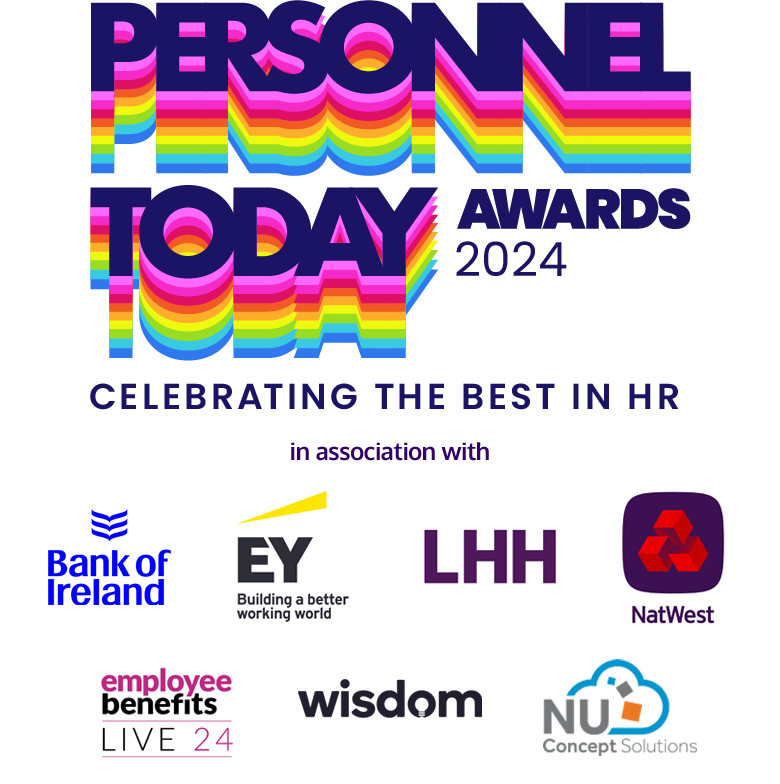The HR Impact Award was particularly tightly contested this year but the judges were won over by Next and The TCM Group’s initiative, which has reduced formal disciplinary cases by 48% and grievances by 11%, earning high approval ratings and paving the way for broader implementation across the business. We look at the winning entry and those of our other finalists.
WINNER
Next in partnership with The TCM Group
Next Plc, a British multinational retailer with over 46,000 employees has, as part of a broader cultural transformation, introduced a new framework called Next Resolution to improve the handling of workplace conflicts, complaints, and concerns. This initiative, developed in collaboration with The TCM Group, focuses on empowering managers to resolve issues quickly and informally, prioritising open dialogue and compassion. The goal is to create a supportive, people-centred working environment that promotes early resolution and reduces reliance on formal disciplinary processes.
Previously, Next relied on outdated procedures that often escalated issues to HR, leading to lengthy and damaging processes. With the new framework, managers are equipped with skills to handle conflicts at an early stage, fostering a positive workplace culture. Extensive face-to-face and virtual training sessions were provided for managers, along with creative communication materials, to ensure the successful implementation of the initiative.
Since its launch, the initiative has been widely praised by managers and employees, with many appreciating the focus on constructive, two-way conversations. It has significantly reduced formal disciplinary cases by 48% and grievance cases by 11%, while also saving costs. The most recent engagement survey showed high approval, with managers rating the initiative 8.2 out of 10. The success of the scheme has prompted Next to develop plans to expand Next Resolution across other areas of the business.
RUNNERS-UP
Personnel Today Awards
All our 2024 winners revealed
View the 2024 photo gallery
The Personnel Today Awards 2025 open for entries around Easter
Sign up to keep updated
Babcock in partnership with Manpower
Babcock International, a large organisation specialising in engineering support for military and civil operations, recently revamped its recruitment strategy to attract more ex-military personnel. The company faced skills shortages in key areas such as nuclear technicians, vehicle mechanics, and construction trades. To address this, it targeted veterans and reservists, recognising untapped potential in this group.
Babcock aimed to significantly increase its engagement with the military community by partnering with various organisations, running more recruitment events, and providing support to bridge skills gaps. It updated its marketing materials to better communicate with ex-service members and trained recruiters to understand their unique needs. Veterans were guaranteed an interview if they met minimum requirements, and a new programme called ‘Train to Fit’ was introduced to help veterans gain the skills needed for specific roles.
The impact has been substantial. From January 2023 to May 2024, Babcock received 16,694 applications from service leavers and reservists, a 41% increase. It hired 1,201 veterans, filling many difficult-to-staff roles. Veterans were also found to be almost twice as likely to be hired compared to general applicants. The cost of recruiting veterans was significantly lower, with a 94% reduction in hiring costs compared to regular candidates. This strategy has set a new standard for future recruitment campaigns at Babcock, delivering both financial savings and high-quality hires.
King’s College London
In 2022, King’s College London’s organisational development team set out to create a supportive and inclusive culture for its 10,500 staff, aligning with the university’s 2026 strategy. Led by director Lorraine Kelly, the focus shifted to improving the staff experience, which had previously been less prioritised compared to student support. The diverse workforce, spread across 27 departments, presented challenges, so the first step was a university-wide staff survey, the first in six years, which had a high response rate of 60%.
The survey identified three key areas for improvement: inclusion, wellbeing, and development. Targets were set to reduce gender and ethnicity pay gaps, lower staff attrition, and increase internal promotions. The organisational development team expanded, bringing in expertise in digital capability and apprenticeships, and worked closely with senior leaders to gain their support for the changes.
Empowering local leadership was a central part of the strategy. Each department devised its own action plan based on the survey results, with central oversight ensuring alignment with overall goals. King’s also introduced masterclasses and focused working groups to address common challenges. Initial results have been promising, with reductions in pay gaps, a drop in voluntary attrition to 6%, and an increase in internal promotions and job referrals. These successes suggest a positive shift in King’s staff community.
Lloyds Banking Group
Lloyds Banking Group (LBG) is undergoing a significant transformation to prepare for the future, requiring employees to adapt their skills for a new banking model. With 67,000 employees spread across the UK and India, career management support is essential. LBG recognises that every employee’s career journey is unique, and it has invested in a comprehensive career support system. This includes an AI-powered talent marketplace, a mentoring tool, and a career planning framework.
Personnel Today Awards
However, despite the valuable tools available, employees found the range of options overwhelming, leading to disengagement. To make these resources more accessible, LBG introduced a new career planning model during National Careers Week 2024. The model encourages staff to reflect, discuss, and act on their career goals. This was supported by virtual career clinics, offering employees 10-minute career conversations with HR. These clinics were highly successful, scaling up from an initial pilot of 40 to over 420 sessions during the week.
The impact was significant, with 86% of participants taking action to further their development, such as having career conversations or seeking mentorship. The initiative proved beneficial not only to employees but also to HR teams, upskilling them on career development tools. LBG is now exploring how to make these virtual career clinics a regular offering across the organisation.
Octavius in partnership with eArcu
Octavius Infrastructure recognised the need to revamp its recruitment strategy to adapt to the evolving industry. Initially, the company outsourced recruitment but faced challenges, such as poor candidate experience and hiring managers bypassing the process. The existing resourcing tool didn’t fully meet expectations, and specific roles, like quantity surveyors and technical engineers, were hard to fill, especially with Octavius’s limited brand recognition outside London and the South. The company also faced a diversity gap, with only 16% female representation in 2020, and tended to recruit from familiar university networks, limiting diversity.
In 2022, Octavius transformed its recruitment by moving to an in-house model, implementing lean principles, and improving collaboration with operational teams. This change improved the hiring process and candidate quality. As a result, Octavius saw significant achievements, including a rise in female representation from 21% to 26% and receiving recognition through various awards, including becoming a Disability Confident employer.
The new applicant tracking system reduced the time-to-hire by four days, and internal mobility improved, with all roles open to internal candidates. Employee referral schemes were relaunched, and social value delivered in 2023 reached £80 million. Octavius also recruited 250 new employees, growing the workforce to 760, while acquiring two new businesses, positioning itself as a leader in talent acquisition and resource management.
Teleperformance
After assessing its approach to absence management in 2021 after the chaos of Covid-19, Teleperformance recognised the need for a more consistent and effective system across its operations. It found that managers were not being held accountable for managing absence, and no central reporting tool existed, leading to varying absence rates across the company. This created friction between operations and the HR team, which struggled to implement a rigid absence management strategy.
In response, the company introduced Absence TLC (Traffic Light Control) in 2022, replacing its former approach. This new method tailored interventions based on monthly absence levels, using a simple RAG+ framework. Accounts with low absence levels required minimal intervention, while those with higher absence were subject to stricter management and more HR involvement. Managers were held accountable for tracking and addressing absences, and senior managers conducted monthly audits to ensure all actions were completed.
Since implementing Absence TLC, absence rates have significantly reduced. From 10.7% in 2021, the average dropped to 7.3% in 2022, 5.9% in 2023, and 5.2% in mid-2024. The company credits the clear structure and consistent management for this improvement. Absence TLC has been widely adopted, including by Teleperformance’s operations in South Africa, where it is helping to manage absence rates.
Virgin Media O2
Virgin Media O2, formed in 2021, combined two major UK brands with over 46 million customers and nearly 19,000 employees. In response to a need for better data-driven insights, its people relations case management team revamped its approach to analysing and managing people-related issues. The old compliance-focused data system was limited, so Virgin Media O2 shifted to a more dynamic system to uncover trends and enable proactive interventions.
To achieve this, the team restructured, appointing a dedicated data lead to develop comprehensive case management analytics. This led to the creation of a versatile data suite, capable of generating insights at both enterprise and divisional levels, allowing leaders to identify trends and address issues earlier. The data was integrated with other HR services to gain a more holistic understanding of employee issues, which informed targeted learning and development opportunities.
The results were significant, including a 35% reduction in people-related issues in one year, saving 9,920 hours and £500,000. Additionally, targeted interventions in one division led to an 88% reduction in specific issues. The new system also improved team development opportunities and ensured that insights were integrated into divisional and enterprise strategies. The initiative helped elevate the organisation’s culture and supported its broader strategic goals.
Vita Health Group
Vita Health Group (VHG) expanded from 200 to over 2,500 employees in eight years, highlighting the need for unity and equal career development, particularly for women and ethnic minorities. Under CEO Derrick Farrell, VHG launched the THRIVE mentoring programme to support career growth, diversity, and inclusion. This initiative aimed to enhance opportunities for all employees while fostering collaboration across departments.
The HR team, led by Caroline Farren-Hines, played a crucial role in designing and managing the programme to align with VHG’s strategic objectives. THRIVE’s team-based mentoring system encourages diverse perspectives, integrates internal networks, and promotes teamwork, breaking down barriers across the company. Participants benefit from workshops, training, and customised development plans.
THRIVE also promotes diversity and inclusion through mandatory diversity training and cultural exchange workshops, helping participants grow in confidence and overcome imposter syndrome. Regular feedback and strategic reviews ensure the programme meets its goals. Surveys show that 80% of participants reported increased confidence and 70% noted stronger cross-departmental relationships.
Sign up to our weekly round-up of HR news and guidance
Receive the Personnel Today Direct e-newsletter every Wednesday
The programme’s success is reflected in the growing number of applicants, with increasing cohorts over time. THRIVE has significantly impacted VHG’s culture, supporting diversity in leadership and fostering personal and professional growth across the organisation, making it a key factor in VHG’s continued success.


